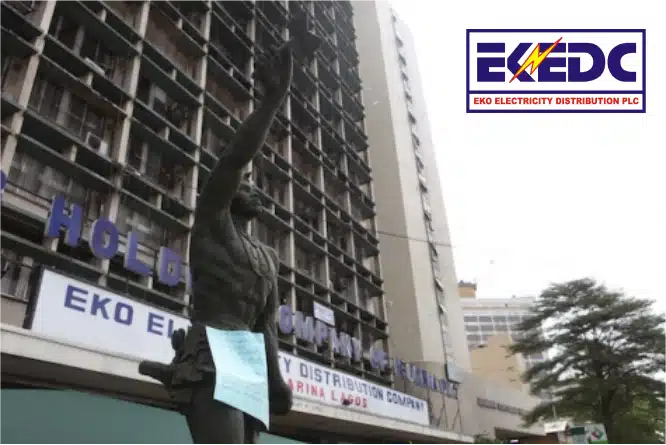The Eko Electricity Distribution Company (EKEDC) has released a public advisory, encouraging its customers to enhance their vigilance and take proactive measures to protect themselves against the increasing threat of cyber attacks.
In a statement from the company, signed by the General Manager of Corporate Communications, Babatunde Lasaki, it was emphasized that as reliance on digital platforms for transactions and communication grows, cyber attackers have developed advanced methods to exploit weaknesses, highlighting the importance of cybersecurity awareness for all.
Lasaki pointed out several prevalent threats that customers should recognize and provided guidance on how to respond to issues such as phishing attacks, social engineering scams, ransomware incidents, and identity theft, among others.
He cautioned that fraudsters frequently employ misleading emails, text messages, or phone calls to deceive individuals into revealing sensitive information, including account numbers, passwords, or payment details.
Furthermore, he noted that cybercriminals often manipulate human psychology to coerce victims into disclosing confidential information by impersonating EKEDC officials or pretending to be distressed family members seeking financial assistance.
Regarding ransomware attacks, he explained that malicious software can lock users out of their devices or files, with attackers demanding a ransom for restoration of access. He mentioned that such attacks typically occur when users inadvertently download infected files or click on harmful links.
He warned, “Attackers steal personal information, such as National Identification Numbers, bank account details, or passwords, to impersonate victims for fraudulent activities. Hackers exploit reused or weak passwords across multiple accounts to gain unauthorized access to systems and data.”
To protect themselves from potential scams, EKEDC has advised customers to implement effective online safety practices.
He emphasized the importance of verifying the legitimacy of any emails, text messages, or phone calls that appear to be from EKEDC, noting that the company will never ask for sensitive information such as passwords or PINs in its official communications.
Lasaki also encouraged customers to create strong and unique passwords for their online accounts, steering clear of easily guessable options like names, birth dates, or consecutive numbers.
“Enable multi-factor authentication. Add an extra layer of security to your accounts by enabling MFA, which requires a second form of verification in addition to your password. Keep your devices and applications updated to ensure you have the latest security patches.
“Avoid public Wi-Fi for transactions, as public Wi-Fi networks are often unsecured and can expose sensitive information to attackers. Use secure, private networks for online transactions. Do not click on unknown links or download unsolicited attachments, as they may contain malware or phishing traps.
“As part of its commitment to customer safety, EKEDC has implemented robust cybersecurity measures to protect its digital platforms. Customers are encouraged to report suspicious activity or potential scams involving EKEDC services immediately through official channels,” the statement stressed.
